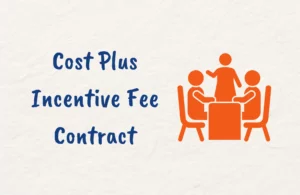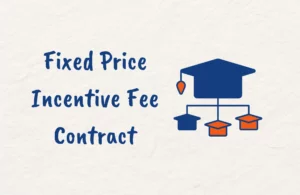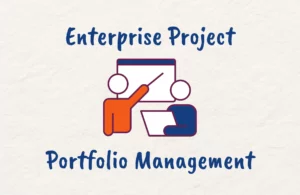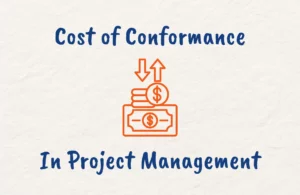Whether you are an aspiring or experienced project manager, there are certain questions you will likely ask yourself when it comes to a project management career.
Some of these questions are centered around project management certifications. You will likely ask if you need a project management certification, and if yes, which one?
There are quite a lot of project management certifications out there, with some more popular than others. The PMP certification happens to be one of the most popular ones.
If you are asking yourself what are the PMP certification benefits, and if you need one, then this is the right place to start.
In this article, we’ll shed light on what PMP is about, the advantages of getting a PMP certification, and how it can benefit your career.
PMP Certification Overview
The PMP certification which stands for Project Management Professional is a globally recognized credential for project management professionals.
It is awarded by the Project Management Institute (PMI), a nonprofit professional organization dedicated to advancing the field of project management.
To earn a PMP certification, individuals must meet certain eligibility requirements and pass a comprehensive exam that tests their knowledge and skills in project management.
Holding a PMP certification demonstrates a level of expertise and commitment to the profession, as well as a thorough understanding of the PMI’s Guide to the Project Management Body of Knowledge (PMBOK).
This guide outlines the principles and best practices of project management, including the five phases of a project (initiating, planning, executing, monitoring and controlling, and closing) and the ten knowledge areas (integration, scope, schedule, cost, quality, resources, communications, risk, procurement, and stakeholder management).
Obtaining a PMP certification requires a significant amount of time and effort, but it can be a worthwhile investment for professionals looking to advance their careers and increase their earning potential.
In the following section, we will delve into the 10 top PMP certification benefits.

PMP Certification Benefits
Obtaining a PMP certification can bring numerous benefits to professionals in various industries.
Here are some of the key PMP certification benefits:
1. Enhanced Credibility and Recognition in the Industry
A PMP certification is recognized globally as a symbol of excellence in project management.
Holding this credential can give you an edge in the job market and increase your credibility among peers and employers.
2. Improved Job Prospects and Earning Potential
Many employers actively seek out PMP-certified professionals when hiring for project management roles.
Having a PMP certification can also lead to higher salaries and better job opportunities.
According to PMI’s 2020 Project Management Salary Survey, PMP-certified project managers earn on average 20% more than those without the certification.
3. Enhanced Skills and Knowledge in Project Management
Earning a PMP certification requires a thorough understanding of the PMBOK and its principles and best practices.
This can help you become a more effective and efficient project manager, leading to better outcomes for your projects.
4. Opportunities for Professional Development and Advancement
Getting a PMP certification is not a one-time achievement as you have to continuously maintain it.
To maintain the credential, PMP-certified professionals must earn continuing education units (CEUs) every three years.
This helps ensure that they stay up to date with the latest developments in the field and can continue to grow their skills and knowledge.
In addition to that, obtaining a PMP certification can open up new opportunities for professional development and advancement within your organization or industry.
5. Improved Project Outcomes
PMP-certified professionals have a proven track record of delivering successful projects.
Their knowledge and understanding of the PMBOK and best practices in project management can lead to better project planning, execution, and control, resulting in improved project outcomes.
6. Improve Leadership Skills
The PMP certification process requires professionals to demonstrate their leadership skills and experience in leading and directing projects.
This can help PMP-certified professionals develop their leadership skills and become more effective leaders.
7. Greater Job Stability
PMP-certified professionals are in high demand and often have more job stability than those without the certification.
The credential demonstrates a commitment to the profession and a level of expertise that can make PMP-certified professionals more valuable to their organizations.
8. Improved Communication Skills
The PMP certification process requires professionals to demonstrate their ability to effectively communicate with project stakeholders, including team members, clients, and upper management.
Just like every other skill, practice makes perfect, and demonstrating your communication ability helps improve your communication skills.
9. Increased Ability to Work with Diverse Teams
PMP-certified professionals have a strong understanding of the human resources knowledge area of the PMBOK, which covers topics such as team development and conflict resolution.
This can help PMP-certified professionals work effectively with diverse teams and resolve conflicts that may arise during a project.
10. Global Recognition and Acceptance of the Certificate
The PMP certification is recognized and accepted globally, making it a valuable asset for professionals looking to work on international projects or advance their careers on a global scale.
In summary, getting a PMP certification can bring numerous benefits to professionals looking to advance their careers and increase their credibility and recognition in the field.
In the next section, we will discuss the steps involved in obtaining a PMP certification.
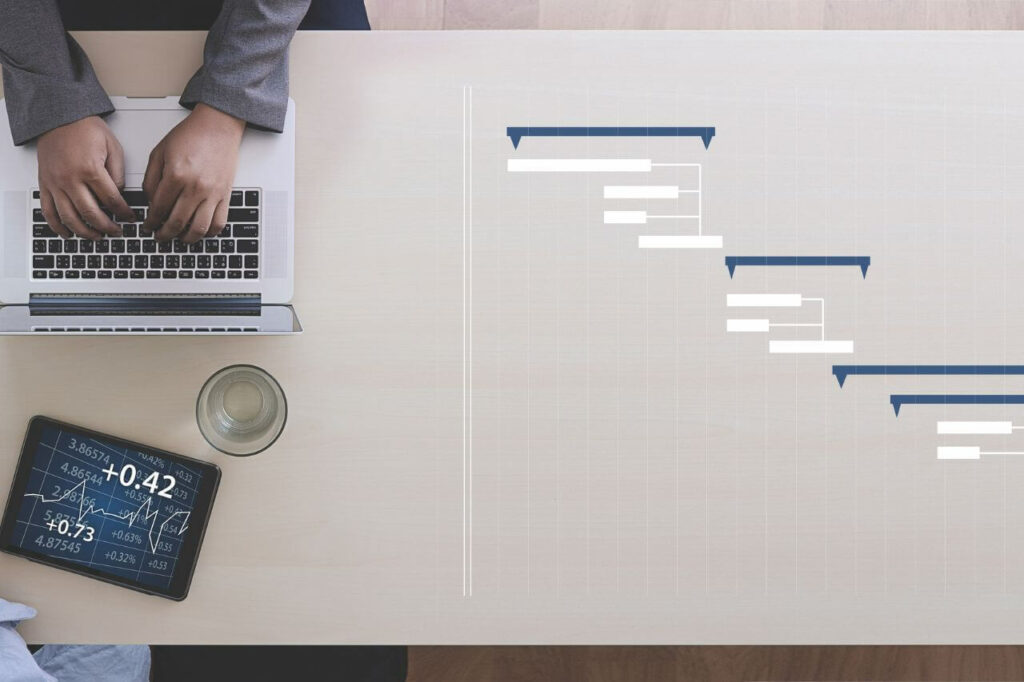
How to Obtain a PMP Certification
If you are interested in obtaining a PMP certification, here are the steps that you need to follow:
1. Meet the Eligibility Requirements
To be eligible for a PMP certification, there are certain requirements that you have to meet or fulfill. These requirements are educational and experience-based.
According to the PMI, you must have either a secondary degree (high school diploma, associate’s degree, or the global equivalent) and at least five years of project management experience, with 7,500 hours leading and directing projects.
Alternatively, you must have a four-year degree and at least three years of project management experience, with 4,500 hours leading and directing projects.
You must also complete 35 hours of project management education or training.
2. Complete the Application Process
Once you have met the eligibility requirements, you can apply to take the PMP exam. Application is done on the PMI website.
The application process involves creating a PMI account, filling out an online application form, and paying the exam fee.
The cost of the PMP exam varies depending on your membership status with PMI. As of 2023, the exam fee for PMI members is $405 and $555 for non-members.
In addition to the exam fee, you may also incur other costs, such as the cost of study materials and courses to prepare for the exam.
It is generally a good idea to budget for these costs when planning for the PMP certification process.
3. Take the PMP Exam
When you have submitted your application and set a date for your exam, the next step is to take it.
The exam consists of 200 multiple-choice questions that test your knowledge and skills in the ten knowledge areas outlined in the PMBOK.
The exam is computer-based and is offered at testing centers around the world. To get PMP-certified, you need to pass the exam.
The exact passing score is vague and varies depending on the questions you get.
4. Maintain Your PMP Certification
You have passed your PMP exam and are now PMP-certified. Hurray. End of story? No. You need to maintain your certification.
To maintain your PMP certification, you must earn 60 professional development units (PDUs) every three years.
You can earn PDUs by participating in activities such as attending professional development courses, volunteering for PMI committees, or writing articles for PMI publications.

How Hard Is It to Get a PMP Certification?
This is a very common question asked by almost anyone that wants to write the PMP exam and get certified and it’s understandable.
With the exam costs combined with other costs that you will inevitably incur to prepare adequately, you will want to have an idea of how feasible it is for you to pass the exam.
The difficulty of obtaining a PMP certification is relative and varies depending on individual circumstances and factors.
These include your experience and knowledge in project management, your dedication and commitment to the process, and the amount of time and effort you put into preparing for the exam.
To prepare for the PMP exam, it is recommended that you study the most recent version of the PMBOK (this is key as newer versions emerge) and other study materials, such as practice exams and review courses.
It is also advisable to gain practical experience in project management, either through work or volunteering, to better understand the concepts and practices covered on the exam.

Is It Worth Getting a PMP Certification?
If you ask about 10 different project managers that have a PMP certification this question, there’s no guarantee that you will get the same response from everyone. This is because our experiences and backgrounds often differ.
While I happen to be an advocate of getting a PMP certification as it has been extremely beneficial to me, let’s look at a point of view from another project manager.
Is a PMP Certification Right for You?
A PMP certification can be a valuable investment for professionals looking to advance their careers and increase their credibility and recognition in the field.
However, it is not right for everyone. Here are some factors to consider when deciding whether a PMP certification is right for you:
1. Your Career Goals
If you are looking to move into a project management role or advance your career in project management, a PMP certification can be beneficial.
It can open up new job opportunities and increase your earning potential.
2. Your Current Job
If you already work in a project management role, a PMP certification can demonstrate your commitment to the profession and help you stand out in the job market.
However, if you do not work in project management or do not have the necessary experience or education to meet the eligibility requirements, a PMP certification may not be a good fit for you.
3. Your Availability and Dedication
Obtaining a PMP certification requires a significant amount of time and effort, including completing the required education and training, studying for the exam, and maintaining the credential.
If you do not have the availability or dedication to commit to this process, a PMP certification may not be right for you.
Ultimately, the decision to get a PMP certification is a personal one that depends on your career goals and your current job situation.
It is worth considering the potential benefits and weighing them against the time and effort required to obtain and maintain the certification.
Conclusion
Obtaining a PMP certification can be a challenging but rewarding process.
It requires dedication, commitment, and a thorough understanding of the principles and best practices of project management.
However, the benefits of getting a PMP certification can be well worth the effort as highlighted in this article. So if you want these benefits, then my advice is that you go for it.
FAQs
Does PMP Certification Help Get a Job?
While a PMP certification alone won’t necessarily make your prospects of getting a job automatic, it is a great stepping stone in career development.
The PMP is not an entry-level certification and is designed for people that already have years of experience as project managers. With this certification, you can take your career as a project manager to a greater level.
How many years is PMP good for?
A PMP certification once attained has cycles which each lasts for 3 years. During this time, you need to earn 60 PDUs to renew the certification at the end of the 3 years.
Do you need to maintain PMP?
Yes, you need to maintain your PMP certification by earning at least 60 PDUs (Personal Development Units) every 3 years. This starts from the day you pass the PMP certification exam.


